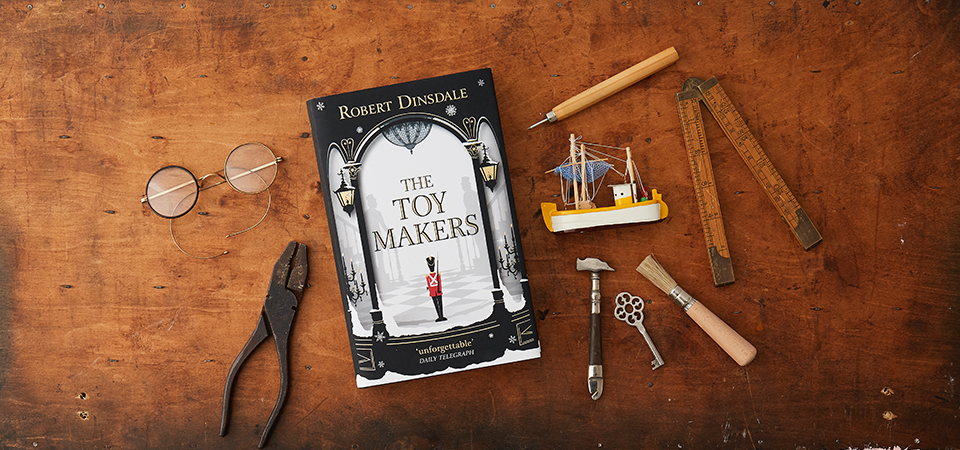- Home |
- Search Results |
- Robert Dinsdale on the magic powers of toys

When I was in the middle of writing The Toymakers, lost down some narrative back-alley with toy soldiers marching me even further into the dark, I caught up with an old friend for a long overdue drink. His mother had passed away some time before, and now his father had followed after, and it had fallen to my friend to empty the old family home, to take itineraries of their lives and itemise his own. Every object was a memory in that old house: the crockery on which they once ate their family dinners, still sitting in the cupboards where it had always been; the familiar stains in the carpet, or loose fabric on the sofas on which they all used to sit. But, for my friend, nothing was more powerful than climbing the ladder into his family attic and unearthing the boxes where the books and toys of his childhood were safely stowed away in boxes, perfectly preserved. And it’s this bittersweet feeling of remembering that lies at the heart of the magic of Papa Jack’s Emporium. For my friend, rolling the dice from a moth-eaten board-game, uncovering the head of the rocking horse that once sat in the corner of his room, slotting back together the joints of a decrepit toy race track, felt like holy things. They washed away the more recent memories of death and divorce that had been his family life. They restored the love he had felt back then – but more powerful yet, they restored the love he had himself given. To discover that there was once a time when he could love an inanimate object so fiercely that it still echoed in him, an adult man, thirty years later, had moved my friend beyond measure. To know we still have the ability for simple, un-thought-through love is the most powerful thing.
And perhaps that’s the nature of the longing I myself feel when, on my own rare trips into the childhood attic, I catch sight of the dinosaurs, the patchwork dog on wheels, the dolls and cars and building bricks in whose company I spent so much of my earliest years. Like the plastic figurine my daughter had clung onto that day, these things are worth nothing to the world. But the love we pour into them, the time and imagination we invest turning them into real, life things, makes them worth everything to us.
We all grow up. We all grow old. Every day we spend living is a day further away from the childhoods in which we had that pure, unfiltered, un-nuanced ability to love. Every day there are new experiences to crowd out the old, new stories being written in our histories, new memories obscuring the earliest we made. But our toys are childhood crystallised. To me they are more powerful than old photographs, more powerful than old flavours and scents. They have the power to transport us back to the strange, half-formed creatures we used to be, in an age before life taught us to beware, to be suspicious, to build hard, protective shells around ourselves in order to survive. To hold a toy from your childhood is to remember what that was like. As Papa Jack tells his sons in The Toymakers: everyone was once a child, no matter what they’ve done or who they’ve grown up to be. And in a reactionary world, where daily we fling bile at each other online, where too many of us hate our neighbours because of the colour of their skin, the gods they worship, or the place they were born, this seems to me the most important lesson of all.